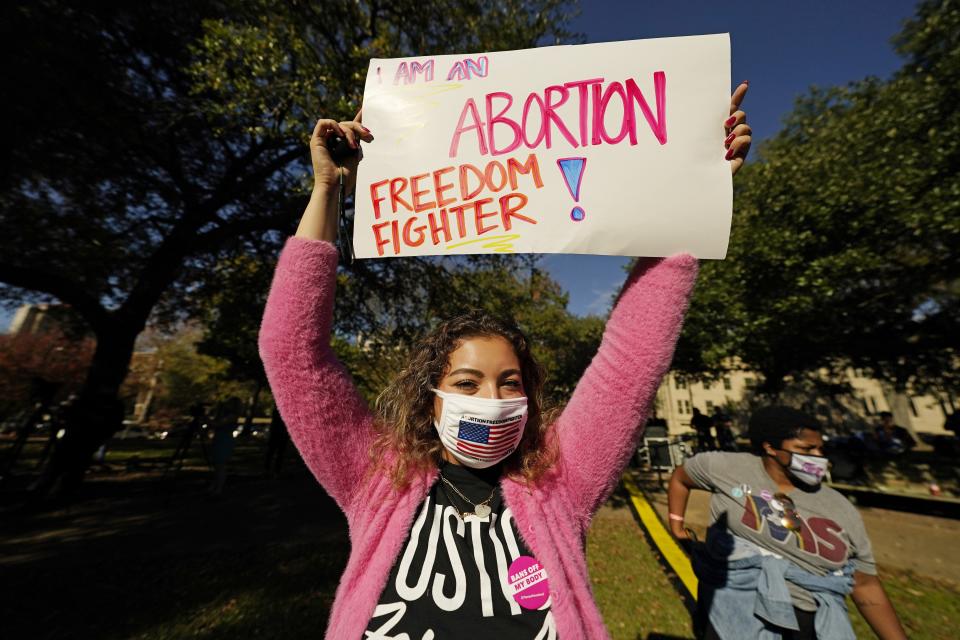'Motherhood penalty' among reasons women can't 'have it all' if abortion is not legal and safe

The argument that abortion is no longer needed because women can balance work and family was advanced last week before the Supreme Court.
The court is considering a Mississippi law banning abortion after 15 weeks. Mississippi’s attorney general, Lynn Fitch, argued in a brief to the court that women could have successful careers while having children.
According to Fitch, the idea that abortion could help level the playing field for women, and allow them “to participate equally in the economic and social life of the nation,” as decided in Planned Parenthood v. Casey in 1992, was now outdated.
Women don’t need abortions, Mississippi’s attorney general claimed, because they already have it all.

This argument is wrong on the facts. As many parents know, the so-called balance between work and caring for your family is impossible for some people, and difficult for nearly everyone else.
The United States is one of only six nations in the world which has no federally mandated paid parental leave, and it spends far less on public preschool and daycare than other wealthy nations. When it comes to the care of young children, the expectation is that parents, especially mothers, are on their own.
This hits poor women and women of color the hardest.
More: Columbus files brief with Supreme Court for 29 cities and counties opposing Mississippi abortion law
Studies show that women take on a heavy economic burden when they have children. Mothers lose thousands of dollars in lifetime earnings, a “motherhood penalty” that generally does not impact fathers’ incomes.

One study comparing women who were able to get an abortion with those who were denied found that women who could not get abortion care were three times more likely to be unemployed and four times more likely to have household incomes below the poverty level.
It’s true that some women can have children without losing their economic security, but our society has a long way to go before this is possible for all women. For this reason alone, abortion needs to be a choice that people can make for themselves.
Moreover, a pregnant person’s choice to have an abortion is not always, or only, about financial costs.
People may choose abortion for many reasons, including health concerns or being unready to care for a child. A person may elect an abortion simply because they do not want to parent a child. These are all choices we must respect, and this is settled law under the Roe v. Wade decision.
More: Overturning Roe v Wade would take away equal protection for women
Finally, the Mississippi Attorney General’s argument is wrong because it fundamentally misunderstands the meaning of gender equality.
The measure of equality cannot be limited to whether a person can raise children while holding down a job. Generations of feminist activists have struggled for much more than this. They fought for a society in which full and equal participation in all aspects of life was not constrained by gender.
In 1994, the SisterSong Women of Color Reproductive Justice Collective offered an expansive vision of equality through the concept of reproductive justice. Reproductive justice is the right to “maintain personal bodily autonomy, have children, not have children, and parent the children we have in safe and sustainable communities.”
More: Rally draws more than 1,000 reproductive rights supporters to Ohio Statehouse
Reproductive justice is not just about whether a woman can have a job and be a mother. It’s about each person, regardless of their gender, being able to make choices about having children. It’s about having support to raise those children. And it’s about each person’s right and ability to make decisions about their bodies and their health.
More: Opinion: 'Fake healthcare centers' using taxpayer money to spread lies about abortion
Abortion rights are one part of building a just and fair society for all people, across gender. We’re not there yet, and the Mississippi law takes us in the wrong direction. The right to an abortion is not outdated or unneeded. If women are truly to “have it all” and participate freely and fully in our society, we need legal, safe, and accessible abortion.
Mytheli Sreenivas is associate professor of history and women’s, gender and sexuality studies, as well as director of the South Asian Studies Initiative at Ohio State University. She also is the author of “Reproductive Politics and the Making of Modern India.”
This article originally appeared on The Columbus Dispatch: What could be the consequences 15 week abortion ban?
